The fishing is always difficult on the first day. You sit quietly in the skiff as it skims over the water, feeling the wind in your face and tasting salt on your lips and admiring the white egrets who stand in the shallows motionless like palace guards but all the time you are going over in your mind what needs to be done when you are standing on the nose of the skiff, the yellow fly-line in your left hand, peering into the flickering water, looking for a dark movement crossing the white sandy ocean floor or the roiling tails of bonefish sliding through water not even a foot deep.
Keko killed the engine. “Bonefish,” he said.
“You go ahead first, Greg.”
“You sure?”
“Absolutely.”
Keko reached with his left hand for Greg’s bonefish rod, pulling it easily out of the slots in the side of the boat, and handed it up to Greg who stepped up to the nose of the skiff while Keko released the long black fiberglass pole and climbed up to the platform on the back of the skiff and slowly began poling. Greg stripped out the line and passed it back to me where I coiled it at my feet inside the boat.
“Listen to me, my friend,” Keko said. “Only cast when I say cast. No cast unless we see bonefish. Understand? I tell you ten o’clock, one o’clock, three o’clock…ten meters, fifteen meters. Understand? And my friend…tranquilo, tranquilo.”
The air was still. Whatever wind there had been this morning had died and now the sun reflected off the surface of the water and the white of the boat, and even covered as we were in long-sleeved shirts, long-billed hats, and polarized sunglasses, the heat and the light seemed to seep into every available inch of flesh.
“Okay…my friend. You see? Big fish is coming…eleven o’clock…you see? Fifteen meters.”
Greg released the fly and began flipping his rod back and forth, letting out line.
“Wait…wait…okay, now. Ten meters…you see?…more left…more left. Okay, now!”
Greg flicked the rod hard on his forward pump, let the line glide through his left hand, but the line puddled and dropped well short of the school.
“Again,” said Keko. “More farther. You see? To the right…to the right…more longer.”
Greg released the line again, this time dropping it directly on the nose of the lead fish and the school roiled the waters and dispersed in all directions like the ripples from a stone thrown into a pond.
“My friend,” said Keko. “Relax…relax.”
For two hours we fished, trading places, both of us clumsy with the line, our rods, our bodies, trying to remember the old tricks of double pumping or stripping the line with your body turned half towards the back of the boat so as not to bring your hand into your belly but behind your body, and as time went by slowly it began to come back, pulling the hammer, painting the ceiling, staying at ten and two, dropping the fly a meter in front of the school instead of on their heads. Greg hooked a bone, forgot to set the hook and lost it; I hooked one but the line was tangled around my reel and by the time I’d gotten it straightened out the bone had broke the line.
Late in the afternoon, the sun now nearer the horizon, the heat easing up, Keko poled the skiff in shallow water no more than twenty or thirty feet from shore. He let the boat glide to a stop, dug the pole into the muddy bottom, tied a line to an end to the skiff and told Greg to put on his shoes and get out. He handed me my number eight as Greg slid over the side of the boat.
“Okay, my friend…cast in front…short cast…five meters…twelve o’clock…you see?…a big school in front…you see?”
I saw the dark shadows—twenty, maybe thirty—moving like torpedoes towards the skiff. Keko instructed Greg to maneuver along the left of the coral, towards shore.
“Cast now, my friend,” he instructed him. “In front…you see?”
Greg made a quick cast, slowly stripped the line, and the pole bent in half, the reel clicking as the line quickly pulled away.
“Big fish!” said Keko, happily. “Very big fish. You see?”
While Greg was playing the bonefish, letting it run for twenty or thirty yards, then reeling it in as fast as he could only to let the line go when the fish began running again, I hooked my own fish. Now we both listened to our line sing, Keko telling Greg to slowly walk backwards, towards the beach so his fish would not foul my line. He brought his up first, letting out a holler, holding the long silver body in his two hands in front of his face so we could admire the size; minutes later, I did the same. We released the fish and tried again.
The school had swum into a long hole rimmed by a coral reef on three sides for about a hundred feet. Their only exit point was where Keko had positioned the Dolphin skiff and each time the school attempted to break out of the pool, he would slap the water with the flat end of his pole and the fish would turn around and swim the other direction, towards Greg.
For two and a half hours we fished the school, Greg hooking over a dozen bonefish and landing eight; I hooked almost as many and landed four. It was the most extraordinary afternoon of fishing for bones either of us had ever had. We both also caught six or seven reef fish—small red snappers, box fish, jacks. Finally, about six, the tide got high enough that the school was able to escape over the tops of the coral. Greg walked back to the skiff and we sat there, sweating, our hands shaking from the hundreds of casts we’d made, talking over the afternoon. We drank icy Cristals, legs dangling in the cool water as the boat drifted on the tide, Keko, his legs up on the seat, his arms on his chest, smiling, happy.
“You see, my friend?” he said. “Tranquil…tranquil.”
We drank a second Cristal each, the beer tasting better than any beer I’d ever had, describing the fish that were particularly large or had put up a long fight, taking so much line from our reels that we were certain we would lose them only to have them stop long enough to take in the line before they ran again. We could even admire the fish we’d lost, crediting their strength or valor or intelligence in running the line over the sharp coral until it broke.
When we got back to the Avalon, it was dark. Suliet greeted us on the stern of the boat with mojitos. “So, David,” she said, smiling at me and handing me my drink. “How was your fishing?”
“It was fine,” I told her. “It was more than fine. It was damn good actually.”
Everyone else was already back. They were sitting upstairs in the lounge area, drinking beer or mojitos, recounting the afternoon. Everyone had caught at least a couple of bonefish. Nick, who had never caught a bonefish before, got three as well as a barracuda. Hardy put on some Cuban music. Suliet came up from the galley with pizza, cut into squares, for appetizers. I felt I had never been so hungry or so thirsty in my life. I drank the mojito as if it were water and Suliet made me another. Around nine we sat down to dinner—lobster with garlic butter, jack crevalle in a spicy salsa, chicken baked with soy sauce, white rice, roasted garbanzo beans in red sauce, tomatoes, cucumbers, pineapple, guava, and papaya. We drank a Chilean sauvignon blanc and then a merlot and after dinner, Hardy put two bottles of whisky on the table and passed out Partagas cigars from a black canister. We drank the whisky and smoked the cigars and listened to Eliades Ochoa and Bebo Valdes and Compay Segundo, the pumpkin-colored full moon rising over the mangroves, talking about fish and fishing and being on the water and drinking more of the whisky while trying to describe what it’s like to watch an osprey carry a fish, nose first, low over the trees just when the sun is going down and the sky is purple-orange. Sometime after midnight everyone but me stumbled off to bed.

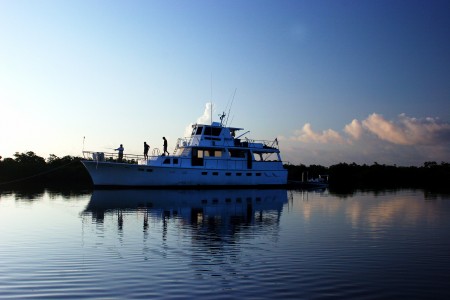
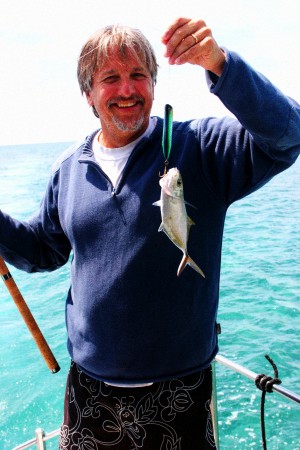
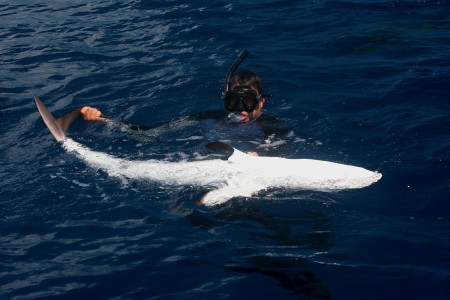
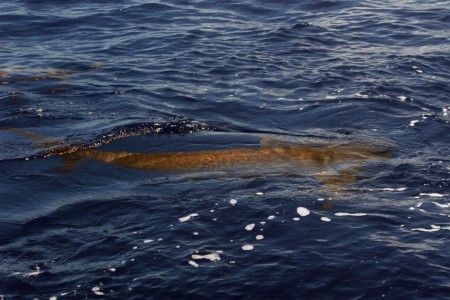
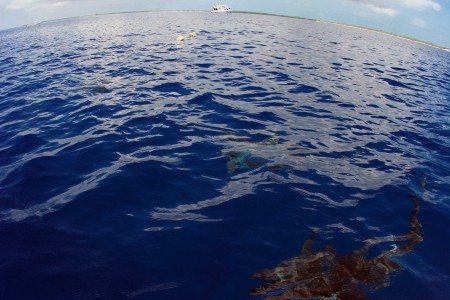
Recent Comments